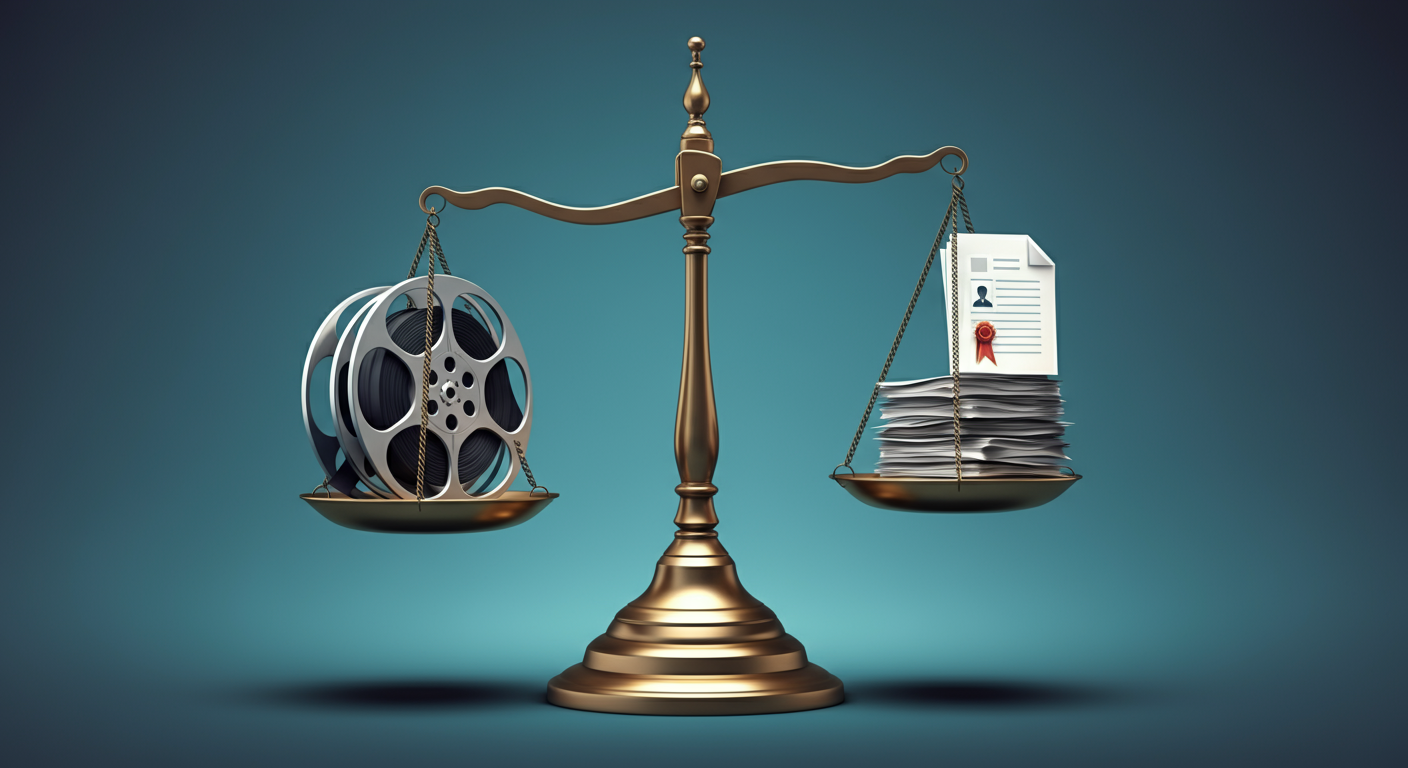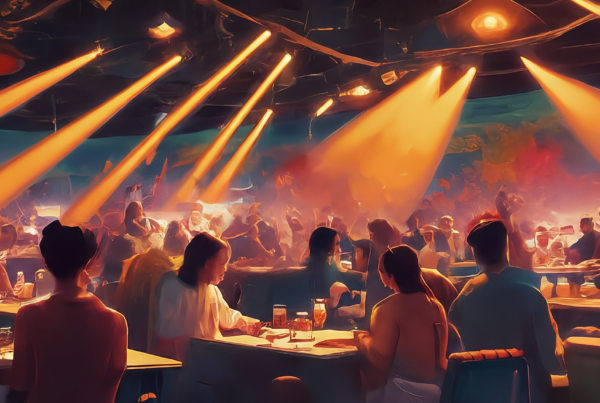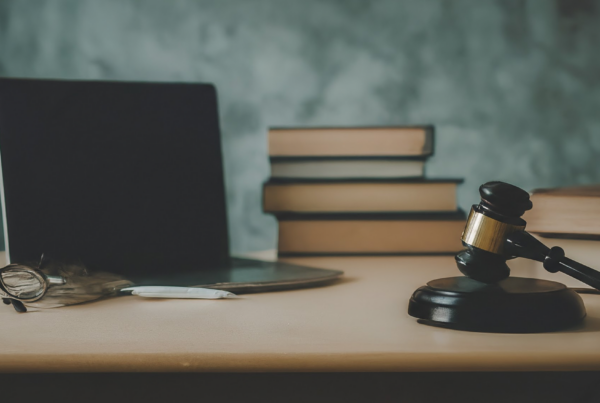In today’s fast-paced world, where digital content reigns supreme, navigating the complex realm of commercial video programming is more important than ever. For businesses in the hospitality and entertainment sectors, understanding the legal intricacies of video programming can make the difference between seamless content delivery and potential legal pitfalls.
Whether you’re a bustling casino or a cozy restaurant, ensuring compliance with licensing and regulations is crucial. Navigating the legal landscape can be daunting, but it’s essential to protect your business and enhance your customer experience. This Commercial Video Programming Legal Guide is here to illuminate the path, offering insights into key legal aspects that every business should be aware of.
At DLM Media, we understand the unique challenges faced by businesses seeking to create engaging atmospheres through video programming. Our mission is to provide a worry-free experience, delivering reliable signal and exceptional service. This guide will explore essential topics such as licensing compliance, intellectual property rights, and industry-specific regulations, ensuring you stay ahead of potential issues.
As you delve into this guide, you’ll discover practical advice and strategies to safeguard your business while maximizing the benefits of commercial video programming. Let’s embark on this journey together, arming your business with the knowledge needed to thrive in the ever-evolving world of digital content.
Understanding Copyright and Licensing in Video Programming
In the realm of commercial video programming, understanding copyright and licensing is paramount. These legal frameworks not only protect creators’ rights but also ensure that businesses can use content without infringing on intellectual property laws. For businesses in the hospitality and entertainment sectors, like casinos and restaurants, navigating these complexities is crucial to avoid legal pitfalls and ensure seamless content delivery.
Copyright laws grant creators exclusive rights to their works, including the right to reproduce, distribute, and display their creations. This means that using someone else’s video content without permission can lead to significant legal consequences. Licensing, on the other hand, is the process of obtaining permission to use copyrighted material. Securing proper licenses is essential for businesses to legally broadcast or stream video content in their establishments.
The Importance of Copyright in Video Production
Copyright protection is vital in video production as it safeguards the original works of creators. This includes not only the video footage itself but also music, scripts, and other creative elements. For instance, a restaurant wanting to play a popular music video must ensure they have the appropriate licenses to avoid copyright infringement. According to the U.S. Copyright Office, copyright infringement can result in hefty fines and legal action, making it crucial for businesses to understand and comply with these laws.
Moreover, copyright laws provide creators with the ability to control how their works are used, ensuring they receive recognition and compensation. This is particularly important in the digital age, where content can be easily shared and distributed online. Businesses must be diligent in respecting these rights to maintain a positive reputation and avoid legal disputes.
Common Licensing Issues in Video Programming
Licensing issues are a common challenge in commercial video programming. One prevalent issue is the unauthorized use of music in videos. To legally use music, businesses must obtain synchronization licenses, which allow them to pair music with visual content. Additionally, a master use license may be required if the business intends to use a specific recording of a song.
Another common licensing issue involves the distribution of video content across different platforms. For example, a casino broadcasting live sports events must ensure they have the appropriate broadcast licenses. Failure to secure these licenses can lead to content being removed from platforms or even legal action from rights holders.
Case Studies: Navigating Licensing Challenges
Consider the case of a bar that wanted to enhance its customer experience by streaming live music performances. Initially, the bar faced challenges in obtaining the necessary performance rights. By consulting with a legal expert and securing the appropriate licenses, the bar was able to legally stream performances, significantly boosting its customer engagement and revenue.
Similarly, a multi-location restaurant chain sought to play popular movies across its venues. The chain encountered licensing hurdles due to the varied distribution rights of the films. By partnering with a content provider specializing in commercial video programming, the chain successfully navigated these challenges, ensuring compliance and enhancing its entertainment offerings.
These examples highlight the importance of understanding and addressing licensing issues in video programming. By securing the appropriate licenses, businesses can not only avoid legal troubles but also create engaging and legally compliant entertainment experiences for their customers.
Legal Considerations for Filming and Distribution
When embarking on the journey of commercial video programming, understanding the legal landscape is crucial. Whether you’re filming a promotional video for a bustling casino or distributing a feature film across multiple locations, legal considerations can significantly impact your project’s success. This section will delve into essential aspects such as obtaining location permits, securing release forms, and navigating distribution rights.
Filming and distribution involve various legal considerations, each with its own set of challenges and requirements. From ensuring you have the right permissions to film in specific locations to understanding the intricacies of distribution rights, being well-informed is key to avoiding potential legal pitfalls.
Location Permits: Securing the Right to Film
Obtaining location permits is a fundamental step in the filming process. These permits grant you the legal right to film in a specific location, ensuring that your production is compliant with local laws and regulations. Without the necessary permits, you risk facing fines or having your production halted.
When planning a shoot, consider the following questions to guide your permit acquisition process:
- What type of location are you filming in? Different locations, such as public parks or private properties, have varying permit requirements.
- What is the duration of your shoot? Longer shoots may require more extensive permits.
- Will you need special permissions for equipment or road closures? Ensure all additional requirements are covered in your permit application.
By addressing these questions early, you can streamline the permit process and avoid disruptions to your filming schedule.
Release Forms: Protecting Your Production
Release forms are another critical legal consideration in video production. These documents provide you with the rights to use the likenesses of individuals appearing in your video, safeguarding against potential legal issues down the line.
Consider these key points when managing release forms:
- Who needs to sign a release form? Anyone who is identifiable in your video should sign a release form, including actors, extras, and even passersby in public settings.
- What should a release form include? Ensure that the form clearly outlines how the footage will be used and any compensation provided.
- Are there special considerations for minors? If your production involves children, obtain consent from a parent or guardian.
Having comprehensive release forms ensures your production is protected and can proceed without legal hindrances.
Distribution Rights: Navigating the Legal Maze
Distribution rights determine how and where your video content can be shared. Understanding these rights is crucial for ensuring your content reaches its intended audience without legal complications.
Here are some common questions to consider regarding distribution rights:
- What platforms will your content be distributed on? Each platform may have its own set of legal requirements and restrictions.
- Do you have the necessary licenses for music and other copyrighted materials? Ensure all content used in your video is properly licensed for distribution.
- Are there regional restrictions to consider? Some content may be subject to specific regional laws and regulations.
By thoroughly understanding and securing distribution rights, you can maximize the reach of your content while staying compliant with legal requirements.
Ensuring Compliance with Industry Regulations
In the realm of commercial video programming, compliance with industry regulations is not just a legal obligation but a strategic necessity. Businesses in the hospitality and entertainment sectors must navigate a complex web of rules to avoid legal pitfalls and ensure smooth operations. This section delves into the key regulations that govern video programming and offers actionable steps to help businesses maintain compliance.
Understanding these regulations is crucial for businesses aiming to provide high-quality entertainment experiences while safeguarding their operations. By adhering to industry standards, companies can protect themselves from potential legal issues and enhance their reputation in the market.
Key Industry Regulations in Video Programming
Several regulations specifically impact commercial video programming. These rules are designed to protect intellectual property rights, ensure fair competition, and safeguard consumer interests. Here are some of the most critical regulations:
- Copyright Laws: These laws protect creators’ rights and require businesses to obtain proper licenses for using copyrighted content.
- Broadcasting Regulations: Governed by bodies like the Federal Communications Commission (FCC), these rules dictate how content can be distributed across different platforms.
- Advertising Standards: Ensure that all promotional content is truthful and not misleading, protecting consumers from false claims.
- Data Protection Laws: Regulations like the General Data Protection Regulation (GDPR) control how businesses collect and use personal data, especially in video content.
Steps to Ensure Compliance
To navigate these regulations effectively, businesses should adopt a proactive approach. Here’s a checklist to help ensure compliance:
- Conduct Regular Audits: Regularly review your video content and licensing agreements to ensure they meet current legal standards.
- Secure Proper Licenses: Obtain all necessary licenses for music, video, and other copyrighted materials used in your programming.
- Stay Informed: Keep up-to-date with changes in industry regulations by subscribing to updates from relevant regulatory bodies.
- Implement Data Protection Measures: Ensure that any personal data collected through video programming complies with data protection laws.
- Consult Legal Experts: Work with legal professionals who specialize in entertainment law to navigate complex regulatory landscapes.
By following these steps, businesses can not only ensure compliance but also enhance their operational efficiency and customer trust. For more insights on maintaining compliance in video programming, explore our other resources on DLM Media.
Key Takeaways for Legal Compliance in Video Programming
As the digital landscape continues to evolve, navigating the legal intricacies of commercial video programming remains a critical task for businesses, especially those in the hospitality and entertainment sectors. This Commercial Video Programming Legal Guide serves as an essential resource, providing insights into copyright, licensing, and industry regulations that are crucial for maintaining legal compliance.
Understanding copyright and licensing is fundamental. Businesses must ensure they have the necessary permissions to use video content, music, and other creative elements. This not only protects them from potential legal action but also upholds the rights of content creators. The importance of securing proper licenses cannot be overstated, as it allows for the legal broadcasting and streaming of content in establishments like casinos and restaurants.
- Secure the Right Licenses: Always obtain synchronization and master use licenses for music and video content.
- Understand Copyright Laws: Respect the intellectual property rights of creators by complying with copyright regulations.
- Consult Legal Experts: Engage with professionals who specialize in entertainment law to navigate complex legal landscapes.
- Stay Updated: Regularly review and update your understanding of industry regulations to ensure ongoing compliance.
In addition to understanding these legal frameworks, businesses must also be aware of the specific regulations that govern video programming in their industry. By conducting regular audits and staying informed about changes in regulations, companies can safeguard their operations and enhance their market reputation.
For those seeking to deepen their understanding or address specific legal concerns, consulting with legal experts is highly recommended. This proactive approach not only ensures compliance but also empowers businesses to create engaging and legally sound entertainment experiences for their customers.
To explore more about how you can optimize your video programming strategy and stay compliant, visit DLM Media for additional resources and expert insights.





